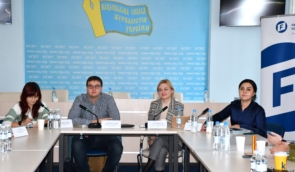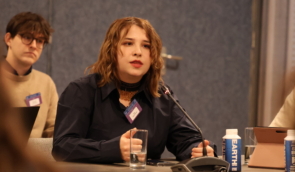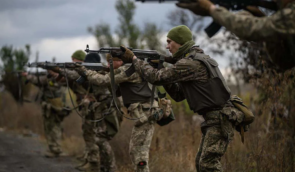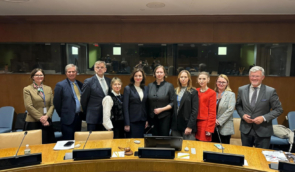Torture, threats, persecution: a book about how Russia destroyed freedom of speech in Crimea presented in Kyiv
Beating, illegal detentions, torture and threats, damage and seizure of equipment, opening of criminal cases on trumped-up charges are just a part of actions Russia has taken against journalists after Crimea was occupied. Journalist Yuri Lukanov, an eye-witness of the events, documented the course of struggle against the free press on the peninsula in his new book “The Press: how Russia destroyed media freedom in Crimea.”
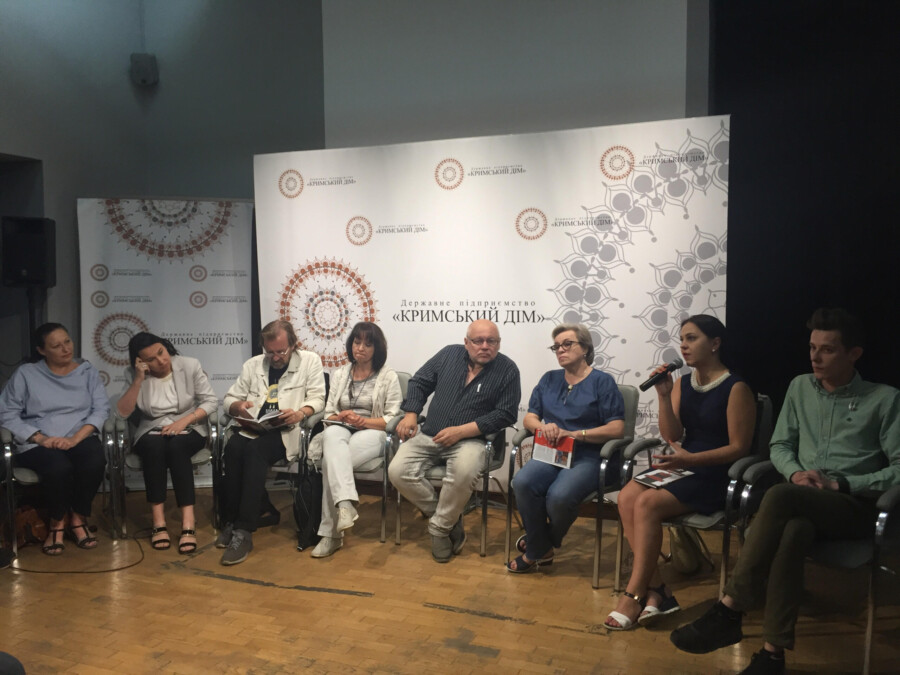
The author and the central figures presented the book on the Journalist Day on June 6 at the Crimean House. During the event, a charity campaign for raising funds for Ukrainian political prisoners in Crimea also took place.
“The Press: how Russia destroyed media freedom in Crimea” is the first consolidated publication of journalists’ memories about the repressions waged by the Russian occupation authorities against the media in Crimea. The book documents the testimony of more than twenty journalists and media owners: Myroslav Mamchak, Valentyna Samar, Tetiana Rikhtun, Stas Yurchenko, Olena Mekhanik, Volodymyr Prytula, Gayana Yuksel, Olena Yurchenko, Shevket Namatullayev, Serhiy Mokrushyn, Yaroslav Pilunsky, Olena Lysenko, Irina Sedova, Valeriy Kulyk, Andriy Senchenko, Ibraim Umerov, Natalia Kokorina, Mykola Semena, Andriy Kymenko, Tetiana Huchakova, Osman Pashayev, Elvina Seitbullayeva, Anna Andriyevska, Lenur Isliamov, Elzara Isliamova.
“The annexation of Crimea has led to the most large-scale repressions against Crimean Tatars, Ukrainians and Russians – everyone who has opposed openly the illegal occupation of Russia – since the Soviet times. The persecution of journalists took place along with the discrimination of Crimean Tatars and Ukrainophobic chauvinism,” British political scientist Taras Kuzio wrote in a preface to the book.
During the presentation, Yuri Lukanov expressed the opinion that the suppression of freedom of speech described in the book shows what Russia would do in the eight region of Ukraine, where it had planned to create the so-called Novorossiia.
“Not only the freedom of speech but the freedom in general would be destroyed and not only journalists but all the dissenters would be subjected to repressions,” the author said. In his opinion, Russia continues a crackdown on the information space in Crimea in order to eliminate the possibility of spreading the truthful information about repressions against Ukrainian patriots and militarization of the peninsula.
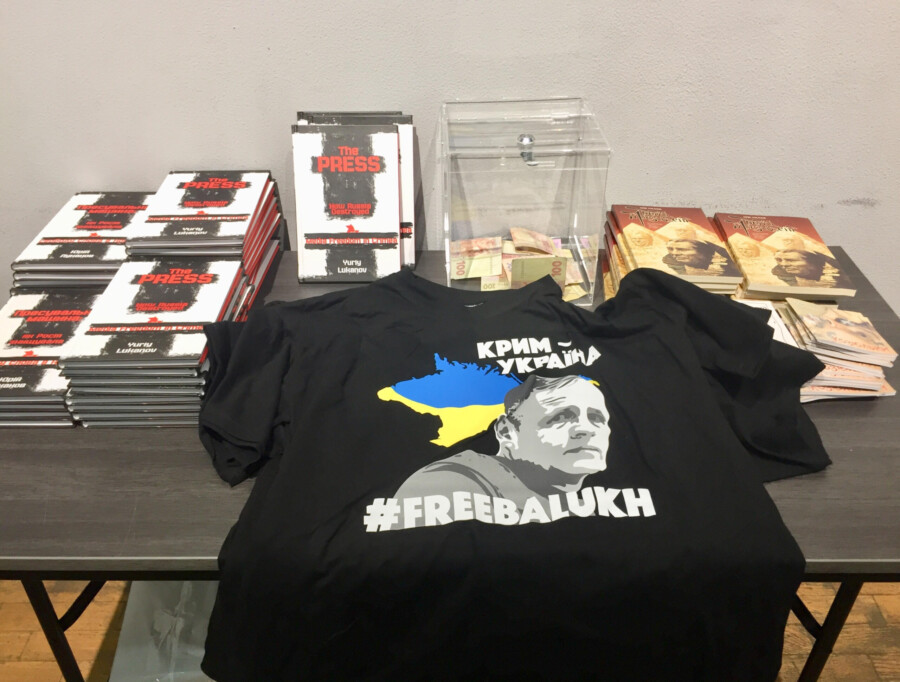
Editor and author of idea of the book, chairwoman of the Human Rights Information Center Tetiana Pechonchyk said that the organization had documented more than five hundred cases of harassment of journalists in Crimea (beating, damage and seizure of equipment, illegal detention, enforced disappearance, torture, threats, denied accreditation, blacklisting, opening of criminal cases on trumped-up charges, fines and other types of pressure and intimidation) during the years of occupation of Crimea. The Human Rights Information Center has also compiled a list of more than 60 persons involved in persecution of journalists and curtailment of freedom of speech in Crimea.
According to Tetiana Pechonchyk, resistance to occupation does not abate as journalists, who were forced to leave Crimea, continue to work on the mainland of Ukraine. They get and spread information, bypassing various obstacles and blockages.
“The Prosecutor’s Office of the Autonomous Republic of Crimea, which operates in the mainland of Ukraine, thoroughly studies the information from various sources and has already opened dozens of criminal proceedings over violation of the rights of journalists in the occupied peninsula. Meanwhile, the non-governmental organizations constantly monitor the situation in Crimea, submit the relevant data to the law enforcement agencies and bring this information to the world community, call for the imposition of personal sanctions on those involved in crimes against Crimean journalists,” the human rights defender summed up.
Write an email to dk@humanrights.org.ua and get a free copy of the book or download it in Ukrainian and English.
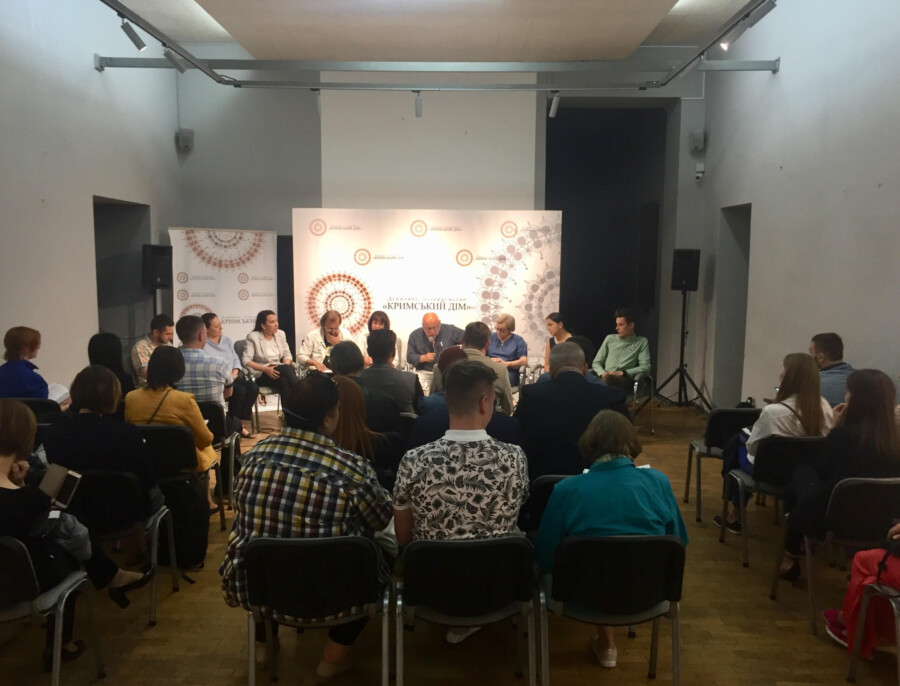
Background
Yuri Lukanov is the author of several books, scripts of documentaries, numerous columns and reports, published in Ukrainian and foreign media outlets. He has covered the events on Maidan, the annexation of Crimea and the war in Donbas. The topic of freedom of speech and the rights of journalists holds a prominent place in his activities. The journalist is the former head of the Independent Media Trade Union of Ukraine.
The book “The Press: how Russia destroyed media freedom in Crimea” was published by the Human Rights Information Center with the financial support of the Embassy of the United Kingdom in Ukraine.
If you have found a spelling error, please, notify us by selecting that text and pressing Ctrl+Enter.


